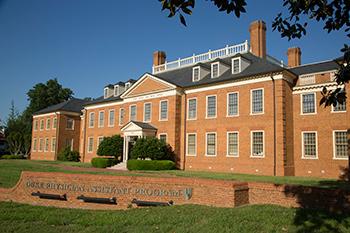
The Health Resources and Services Administration (HRSA) awarded the Duke Physician Assistant Program a $2 million five-year grant for the project “Physician Assistant Leaders in Underserved Communities.”
The grant will provide $400,000 for scholarships to be awarded to 10 disadvantaged students each year, including students who are members of racial and ethnic minority groups. It will also allow the creation of unique clinical opportunities through longitudinal placement in primary care settings in medically underserved communities.
“Our disadvantaged students have high financial need and, even with the desire to practice primary care in a medically underserved community, are deterred from seeking this specialty and location due to the attraction of higher-paying specialties in communities without health provider shortages,” says project director Patricia McKelvey Dieter, MPA, PA-C, professor of family medicine and community health and PA division chief. “This HRSA award will help remove barriers that our students face in pursuing primary care careers.”
This project specifically addresses HRSA’s clinical priority of “Transforming the workforce – targeting the need” by training PA leaders in primary care in medically underserved communities who will be effective in utilizing and collaborating with community-based organizations for better health of their communities.
In addition to Dieter, other key project personnel includes:
- Lori Crooks, director of financial aid and registrar, Duke University School of Medicine
- Melinda Blazar, MHS, PA-C, assistant professor of family medicine and community health
- Alicia R. Bolden, DMSc., MPH, PA-C, assistant professor of family medicine and community health
- Quincy Jones, MSW, MHS, PA-C, assistant professor of family medicine and community health
- April Stouder, MHS, PA-C, associate professor of family medicine and community health and associate director, PA program
The Duke Physician Assistant Program’s mission is to educate caring, competent, culturally sensitive primary care PAs who practice evidence-based medicine, are leaders in the profession, dedicated to their communities, and devoted to positive transformation of the health care system.
This article first published in Duke Physician Assistant Program News